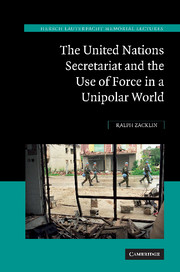Summary
By late 1998 serious rifts had developed in the Security Council regarding the credibility and integrity of the United Nations Special Commission (UNSCOM) and the effectiveness of the sanctions regime which appeared only to deepen the suffering of the Iraqi people without weakening the government. Against this backdrop, Operation Desert Fox, a massive military assault launched by the United States and the United Kingdom to once again compel compliance with the disarmament goals of resolution 687, turned into a political and public relations disaster. The two coalition members acted unilaterally and without seeking Security Council approval for the use of force. The action was commenced at the beginning of the Ramadan holiday, it caused widespread civilian casualties and there was a strong sense that it was motivated more by President Clinton's personal difficulties than by any significant new evidence of Iraqi non-compliance.
The taint of opportunism seemed to be confirmed by the facts. Iraq had become convinced that UNSCOM would never certify progress in disarmament and had ceased all cooperation with that body while allowing the International Atomic Energy Agency (IAEA) to continue its activities provided that it was independent of UNSCOM. This had led to the withdrawal of UNSCOM and IAEA from Iraq on 11 November 1998, but Iraq rescinded its decisions three days later and the Security Council agreed to undertake a comprehensive review of the disarmament process to determine what issue remained to be resolved, once the Secretary-General had confirmed through IAEA and UNSCOM reports that Iraq had returned to full cooperation.
- Type
- Chapter
- Information
- The United Nations Secretariat and the Use of Force in a Unipolar WorldPower v. Principle, pp. 135 - 154Publisher: Cambridge University PressPrint publication year: 2010

